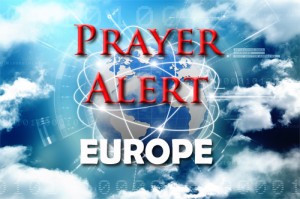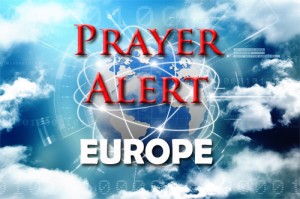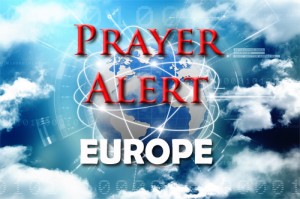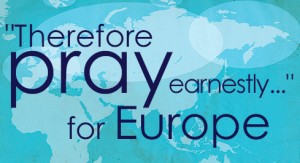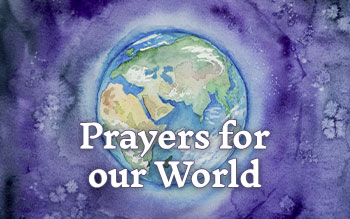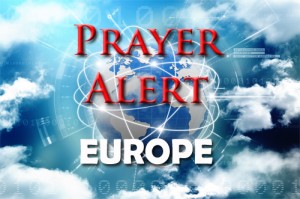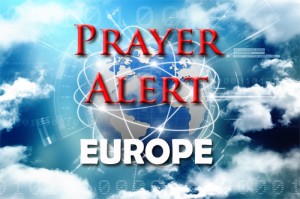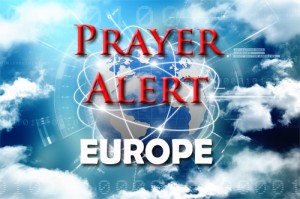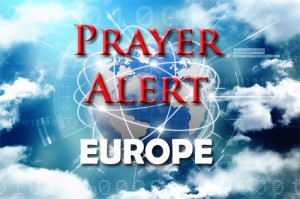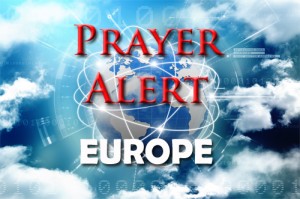Displaying items by tag: Europe
The migratory crisis of Europe
The EU has taken legal action against the Czech Republic, Hungary and Poland for not complying with the order to accept migrants from Africa, Asia and the Middle East. The infringement procedure authorises the EU to sue members breaching their obligations with economic sanctions. Across the EU only 20,000 migrants have been relocated to date. Of the 28 EU members, only Malta has accepted its full quota. However, many so-called asylum-seekers have refused to relocate in central and eastern Europe, where economic benefits are less than in France, Germany or Scandinavia. Also hundreds who were relocated to Estonia, Latvia and Lithuania have fled to richer countries.
France: Emmanuel Macron
Emmanuel Macron will now have to set his mandate: give way to demonstrators, or forcefully implement his manifesto? Which is worse, a massive budget deficit or cuts in social spending? Should he give way to human rights lobbying for accommodation for Calais refugees, or be hard-headed (because housing them might just encourages more)? On these and a host of other questions, no-one knows his thinking. His rule is different from all that went before. His party didn't exist until he dreamed it up last year. Not since Charles de Gaulle, in 1958, has a head of state had such a powerful majority of men and women who depend on him. Half the new parliamentarians will need lessons (literally) in how to do their jobs as they tackle 10% unemployment - nearly 25% among under-25s; bloated public spending (56% of GDP, compared with 44% in Germany and 39% in the UK); and low economic growth.
Germany: G20 summit (7 to 8 July)
Hamburg's police have already had to deal with violent protests at the G20 summit. Hi-tech water cannons were used to disperse crowds on 4 July, injuring five people. Protesters are expected to hoard weapons at secret locations ahead of the summit where global trade, terrorism, climate change, North Korean missiles, Brexit, digitalisation and empowering women will be on the agenda. Body language will be scrutinised in the first face-to-face meeting between Presidents Trump and Putin: pray for a working dialogue between these two leaders. US attitude to trade following Trump's 'America First' policy could be a bone of contention, as will climate change after President Trump pulled out of the Paris climate change agreement. Pray that globalisation and climate solutions are negotiated with a win/win attitude. Angela Merkel has based the talks around an 'interconnected' world, and will address differences between countries.
Brief Note on my Prayer Walking Tour in 6 Countries of Europe, May 2017
The burden to pray in Europe was born around the year 2011 during one of my prayer journeys in USA. I have been praying in USA since 2009 following a burden placed upon my heart during a visit to the grave of David Brainerd and Jonathan Edwards in Northampton, Massachusetts, USA. But my visit to Europe came about only this year, 2017. Lord miraculously provided a family in Hamburg, Germany – Pavan and Hanna - to host me during my visit. This enabled me to attend the International Prayer and Mission Leaders Consultation in Herrnhut, Germany from 8 – 12 May.
Immediately after the Herrnhut meetings, I left on a six-nation prayer walking tour. I was able to visit 10 cities – Leipzig, Berlin, Hamburg, Frankfurt, Amsterdam, Brussels, Paris, Geneva, Zurich and Copenhagen. I also had the opportunity to visit Wittenberg and of course I spent four days in Herrnhut earlier, the birth place of the Moravian Movement. It was a very solemn experience to be in Herrnhut and to reflect upon the vision, the commitment and the life of Count Ludwig Nicholas von Zinzendorf.
This was my first visit to continental Europe and I could only visit six countries in Western Europe. I have no idea of how Eastern Europe is and its needs. Therefore it must be stated that this is by no means comprehensive of the situation in Europe. And I wish to add that it is more through the eyes of one from India, called to preach and teach the word of God and of one who has been following the Lord for nearly 44 years and has been involved in preaching and teaching the Word of God for almost the same number of years.
At the outset I must state that, as in USA so also in Europe the main focus of my prayer was not so much those who do not know God, but my focus was the people of God, the Church – for God’s people to live lives worthy of their calling. If the Church is as she should be, then the world would be reached too. In my opinion the church at large has lost her witness and her authority as well through compromise with the world.
- Before leaving for Europe, I asked the Lord what I should be praying for in Europe. Lord answered that I weep for these cities and the people. This is what I did in each city I visited.
- My first stop after Herrnhut was Leipzig. I attended a Bible study with a small group of young people, all of them were in their 20s. After the study, I asked the group if there was one thing that I could pray for Germany, what that would be? One of the young men answered, “Pray for the burden of guilt that we carry. The guilt of what our ancestors did in the past.” This threw a totally different perspective for me on what some of the Germans might be going through. Another young man at the same group said that there were many who do not see any need for God in their lives and that there was a total lack of knowledge and belief in God or in Christ, These two statements expressed by two men in their 20s gave me an idea of what to pray and this became my focus in Germany.
- One scripture passage that was brought to mind constantly as I walked through these cities, was Romans 1: 18 – 31. These classic words of Paul in Romans tell us the spiritual history of man. I began to understand how this probably came about in Europe, especially regarding the ‘suppressing of truth’ and the consequent ‘revealing of God’s wrath’ – God giving them over to: idolatry, irrationality, immorality and impurity of every kind. I then understood, why Lord wanted me to to weep for these cities and their people.
- In Amsterdam, as I was looking for the hotel where I was booked to stay for the night close to the Central Station, I strayed into the red light area. (I am not sure if this is the famous red light district of Amsterdam). As I walked through and prayed and observed the people, I began to have a sense of foreboding and a palpable sense of the presence of evil all around. It felt as if some one was driving me away to leave the place. I wept. I had the same feeling of foreboding in Freetown Christiania in Copenhagen, Denmark. I felt totally uncomfortable and out of place walking through. I strayed into the place and did not know what it was until I read about it later.
- While travelling by bus from Brussels to Paris, I felt the Lord telling me, “Speak judgement upon these cities”. All along the journey from Brussels to Paris, the route was dotted with small farming villages. And practically every village had a structure with a steeple. Obviously those were small cathedrals and that means there are or were Christians there. This gave me no joy. Unless there are dynamic groups of the body of Christ, cathedrals and physical structures of any kind were of no use. I wept.
Practically everywhere one can see tall physical structures, probably chapels and cathedrals. All these structures as well as the institutions they represent have actually obscured the knowledge of God. They neither represent Him nor His Son, Christ Jesus. The urgent need of the hour is for dynamic groups of followers of Christ, who would truly represent Him in their lifestyles and not in their programmes and projects. I, then understood why I was to speak judgement upon these systems, structures, cities and people – they were not true representations of God. It was as if man erased God’s glory in His creation and built structures which represent his own image – the image of his fallenness. I wept!
In general that was the burden of my prayer all over Europe – that God would raise not bannered groups but living and dynamic groups who would live as the Body of Christ, the way Christ lived. I believe unless such groups arise the world over, there is no hope for the world and the church as well!
- As I walked in Geneva, Zurich, Frankfurt and Copen Hagen and as I looked upon the huge buildings – the financial houses, banks, malls, store-fronts, museums, the art and the architecture, Lord began to say to me, “These are the temples in these nations.”. These have become the source of sustenance, security and identity for hordes of people and thus have supplanted God in their lives. I wept!
Idolatry in the West is not the same as in the East. In the East, they rejected God’s general revelation in His creation and began to worship the creature rather than the Creator. In the West, people seem to have rejected God’s revelation both in creation, His word and His Son and have begun to worship the creature. The only difference is that the gods were different. These gods were gods of money and matter. Ostensibly they appear neutral and innocuous. Yet these demand no less devotion and allegiance and one is as enslaved to these gods as the gods in the East. All these gods blind the eyes of the people from seeing the glory of God in the face of Christ.
I began to sense the presence and the power of Mammon all around. And I began to wonder if Mammon has overtaken us all, both in the West and the East by surprise including many Christians and many churches. We seem to revel in our riches and our material affluence. We do not see money or Mammon as the single greatest rival to the worship of God, as Christ taught in the sermon on the Mount.Instead we think that money is needed to serve God and in the bargain we give more time to making money than to worshipping or serving God. Ofcourse we justify it by super-imposing our work upon worship lapsing into the eastern mindset of ‘work is worship’. I wept!
- Finally, in the midst of it all I prayed for the remanent faithful people of God, who already there sincerely living and following Christ all over Europe – that they would be a potent witness for His Kingdom. I believe they are already there. AMEN, LORD!
Awakening Europe in Prague: Pray for a New Reformation
JUNE 29 - JULY 2 TIPSPORT ARENA, PRAGUE, CZECH REPUBLIC
“Even though it's one of the most beautiful cities in the world outwardly, to my heart it seemed like Nineveh, caught in the valley of decision - not knowing where to go. There are many cities like it all across Central Europe and now it's the church's time to enter the valley and show them the way out.
Since then we have been praying as a team daily for this and we found out this year (2017) will be the 500th year anniversary of the Reformation through Luther. It will also be around 600 years since the Czech Apostle Jan Hus was martyred, and l have personally been gripped by God that it's now time for a NEW REFORMATION.
This Reformation won't be one that divides us though, but rather unites us for the purpose of our cities turning back to God. Sure we could have more conferences - more training - but at some point what we are learning has to affect our nations' future and cause thousands to turn back to God. We don't need to wait anymore, we need a move of God right now.
Luther said: "If I don't pray for 1 day, I feel it. If I don't pray for 2 days, the church feels it. But if I don't pray for 3 days the whole nation feels it". That's exactly where we are at. It's not the time to be asleep, but to be gripped with prayer and to bring mass outreach into this continent.
At this event you will be trained to go back to your nation and city and reach it for Jesus. There will also be a huge emphasis on bringing the lost into the stadium as we call them home to our loving Father. Well known speakers and bands are flying in from all over the world. Men and women of God and churches from all around Europe are bringing bus loads of people to see a NEW REFORMATION this year. The hunger is astounding to us.
We are calling you, too! In fact we need the strengths you carry. Let's once again believe for God's people to be filled with life and for our cities to be shaken by heaven. If Luther and Hus can see it happen, then why can't we? From Charismatics to Catholics, let's move together as a united force from all denominations and bring the power of heaven to Prague, a city in great need.
With a burning heart and many tears over Europe,
Ben Fitzgerald
AwakeningEurope.com
Please join in prayer for a mighty work of the Spirit in the city of Prague, the Czech Republic and throughout Europe, bringing His revival and breakthrough so that indeed there may be a “New Reformation”!
EU extends Russia sanctions until Jan 2018
The European Union formally extended its economic sanctions on Russia on Wednesday, a widely-expected step that keeps restrictions on business with Russian energy, defence and financial sectors until 31 January 2018. The sanctions were imposed in July 2014 following Russia's annexation of Ukraine's Black Sea peninsula and Moscow's direct support for separatists in eastern Ukraine. Moscow denies direct involvement in the conflict, despite NATO's assertions that its troops are supporting the rebels. EU leaders agreed to the extension at their summit in Brussels last week, after France and Germany cited no progress in efforts to negotiate an end to the conflict in eastern Ukraine that has killed more than 10,000 people since April 2014. Under the sanctions that were imposed in tandem with the United States, European companies are banned from doing business with or investing in Russia's defence and energy industries, while financial ties are severely limited. European companies cannot borrow or lend money to Russia's five main state-owned banks for more than 30 days, limiting Moscow's avenues for raising funds. Any lifting of sanctions on Russia is tied to the implementation of the Minsk peace deal for Ukraine which was negotiated by the leaders of France, Germany, Ukraine and Russia in 2015.
Senior cardinal to face sex charges
The Pope's chief financial adviser has decided to take a leave of absence after being charged with historical sex crimes. Cardinal George Pell, the third most senior Catholic at the Vatican, has fiercely denied the multiple allegations against him. At a news conference on 29 June, he said the two-year investigation had been fuelled by ‘relentless character assassination’. He has now been called back to Australia, to appear before Melbourne Magistrates' Court on 18 July. ‘I am innocent of these charges. They are false. The whole idea of sexual abuse is abhorrent to me’, he told reporters. ‘The court proceedings offer me the opportunity to clear my name and then return to my work in Rome.’ In another story, former Archbishop of Canterbury George Carey has been asked to step down from an honorary role in the Diocese of Oxford, after being criticised in an independent review of the church’s handling of sex abuse. The review into disgraced former bishop Peter Ball, who was jailed in 2015, revealed that Lord Carey had failed to pass key information on Ball to the police in 1992. See
Portugal: forest fires controlled after over sixty deaths
Forest fires raging in Portugal since 17 June and which have killed more than sixty people have been brought under control, the civil protection agency says. The largest fire, in Pedrógão Grande, which ravaged 30,000 hectares (74,000 acres) of forests, was doused late on 21 June, and the second biggest blaze, in Góis, was contained the next day. Water-bombing planes and nearly 2,400 firefighters were involved in tackling the fires. Antonio Ribeiro, who led the Pedrógão operations, said that higher humidity levels and lower temperatures had allowed the firefighters to contain the fire and extinguish the remaining hotspots. The president of the League of Firefighters said he believed arson had caused the fire, contradicting an earlier police account.
Romanian PM ousted by his own party
After only six months, Romanian prime minister Sorin Grindeanu has been forced from power, losing a no-confidence vote in parliament by 10 votes to 241. His left-wing Social Democrat party (PSD) had accused him of failing to carry out necessary economic reforms. He had also been involved in a power struggle with party leader Liviu Dragnea, who was barred from office after a conviction for voter fraud. The decision by his own party and its allies to oust him was seen as a first, even for Romania's turbulent politics. The PSD won elections in December, but within weeks protests erupted across the country over a decree seen as weakening anti-corruption measures in one of the European Union's most corrupt member states. Although Mr Grindeanu withdrew the decree, the crisis weakened his government and soured relations between himself and Mr Dragnea. In its most recent report, the EU's executive praised Romania's anti-corruption agency (DNA), but warned that the fight against corruption was under serious threat from political and media attack.
German media: a soft Brexit ?
Senior figures in Europe have been pondering how the result of Theresa May’s election gamble will affect the Brexit negotiations. The newspaper Frankfurter Allgemeine Sonntagszeitung said that the European Commission views the election result as a sign that most Brits don’t desire a ‘hard exit’ from the EU. The European Commissioner, Günther Oettinger, has reportedly said that it may now be possible to discuss ‘closer relations’ between the UK and the EU than Mrs May had originally planned. However Wycombe MP Steve Baker, a committed Christian and one of the most vocal Eurosceptic Tory MPs, was moved in the cabinet reshuffle to an important role in the Brexit department. The choice of Mr Baker is likely to anger those hoping the election result would force Mrs May to adopt a more conciliatory tone on Brexit and drop threats to leave the EU without a trade deal. See also
